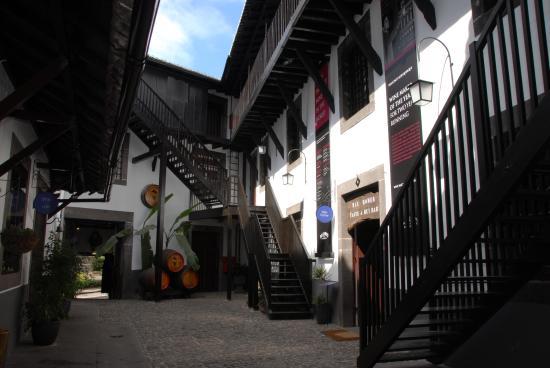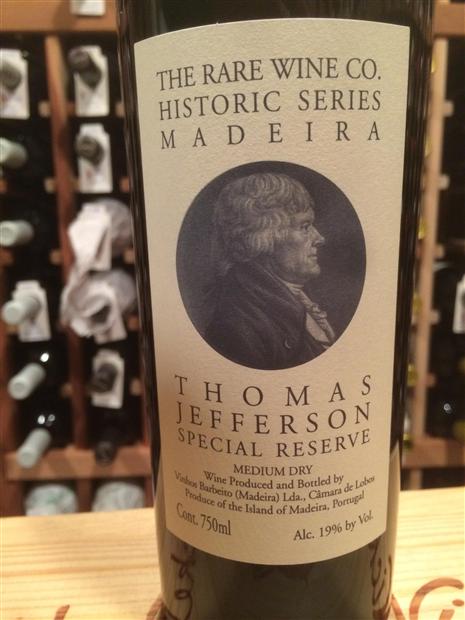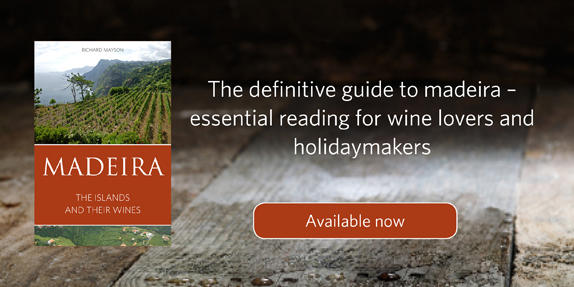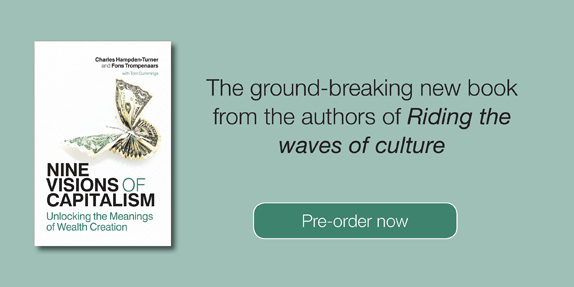Author Archives: Catherine Holdsworth
Madeira: what a wonderful place to go on holiday
8 June 2015 by Catherine Holdsworth in Classic Wine Library, Wine and spirits
The UK has finally decided that it wants to join in with the rest of the northern hemisphere and be all summery. We no longer have to sit in the office chanting ‘Winter is coming’ while watching the rain pour down the windows. So we’re all about planning our summer break and where better to get inspiration than from our own bookshelves?
Madeira: the islands and their wines offers a rich and detailed history of the islands and includes excellent tips for when you holiday there yourself. Lonely Planet eat your heart out! What’s better than a book that immerses you in the culture of its pages? Catherine is seriously rethinking her trip to Madrid and perhaps needs to take a ‘work placement’ among the vines of Madeira!
Did you know that because Madeira is so hilly that most of the vineyards are on a slope? Over hundreds of years, the volcanic islands have been cultivated to produce a very special type of wine. Make sure that you’re on solid ground, though as fortified wine can hit you quicker than the average bottle.

Given that Madeira is basically a very large volcano, there are lots of lava pools to enjoy, hot springs to take a dip in or, if you’re concerned about lava after that wonderful Hollywood classic, Volcano, perhaps you’d prefer to lounge on the beaches, which we think look very nice indeed!
However, don’t forget when travelling to this fantastic island that while there you can literally drink the island! Madeira is growing in popularity and where better to savour the taste than at the source. What is a holiday for, if not to relax and we can’t think of a better way to do that than a vineyard tour and wine tasting. (Catherine recently went to one in Canada, yes, Canada, and can attest that this is an excellent way to spend a holiday). Why not book yourself a wine tour and enjoy what really makes the island special. For hundreds of years, wine has been made on the islands, gaining a global reputation and popularity. Touring the wine lodge of Blandy’s, one of the most successful producers of Madeira, in Funchal will allow you to immerse yourself in the wine and the history of the islands. It should certainly be on your list of things to do when on holiday.
There’s always a come-down when one arrives back in (usually rainy) Britain after a fantastic holiday but at least after visiting Madeira, you can pick up a bottle from your local supermarket and relive the summer once again.
FIFA’s corruption scandal shows capitalism is in crisis
4 June 2015 by Catherine Holdsworth in Business and finance, Current events, Football Business, Nine visions of capitalism
Suggestions of corruption at FIFA are nothing new. It’s been well known for years that millions of dollars have changed hands between the mighty football organisation and sponsors, governments and powerful individuals. However, it’s always been something that was known about but not spoken of, the inevitable side effect of having such a large and influential organisation at the heart of the world’s most popular game.
Now, with the arrests of several FIFA execs and the resignation of Sepp Blatter, it is apparent that even the mightiest corporations can fall. FIFA has, in the minds of many, been associated with enormous wealth, lucrative sponsorship deals and a popular game. But if it emerges that FIFA has given the World Cup to countries that may not be able to sustain it accusations that there has been too much emphasis on the profit of football rather than the game itself may start to ring true.
‘It’s only a game’ they say, but it’s been a game of cat and mouse for the FBI, Swiss investigators and the alleged wrongdoers at FIFA. It was astonishing to many of us that after the arrests that Blatter was once again elected as the FIFA president. Finally, those accused of corruption must answer for their actions and if found guilty take responsibility for running the game in the interests of the highest bidder.
Nobody in England is in doubt that this country was robbed of the 2018 World Cup in favour of ‘corrupt’ Russia, but we may not be the most unbiased arbiters here. It seemed ridiculous at the time, when the UK is already host to stadiums with large capacities and football teams known about and supported the world over. To the casual English observer (and many less biased onlookers) it appeared that the home of Manchester United, Chelsea and Arsenal had been robbed of the chance to bring football ‘home’ simply because Russia could pay more.
However, one must now begin to question not only the morals of bowing to corruption and power, but also the human cost that comes from it. The 2022 World Cup was assigned to Qatar, a country that is far too hot to host a summer football event and one that is in no way equipped for a sporting event on such a grand scale. Tourists will descend on Qatar, demanding alcohol in a dry state, and proving to the world that football hooligans and Qatar perhaps are best kept apart. That is not the worst of it, though. It emerged that last year, a construction worker died every other day on the building sites in Qatar. How has FIFA been able to ignore this unimaginable failure of humanity?
Whether those arrested are found guilty is still to be decided, but one hopes that FIFA can be reformed. If nothing else the revelations of potential corruption suggest that FIFA’s internal workings are extremely old fashioned and display to the world the worst face of capitalism. But FIFA is far from the only big organisation out there that needs to be reformed. The Anglo-American form of capitalism may have had its day if recent banking and other corruption scandals are anything to go by. Once Blatter has left, the organisation must ensure that it takes steps to distance itself from its past. One way of doing this might be to embrace a new approach to business where benefits besides financial gain are given weighting in the decision-making process and where the wealth of the football community at large is prioritised ahead of the profits of a few very rich investors. Capitalism the way we know it almost inevitably leads to the few profiting at the expense of the many, but it doesn’t have to be this way as smaller movements around the globe, such as crowdfunding, the Conscious Capitalism movement and the Cambridge Phenomenon are proving. Big businesses the world over can learn valuable lessons from such organisations.
Winter is coming and you’d better be ready (season 5, episode 8)
2 June 2015 by Catherine Holdsworth in Business and finance, Entertainment, Game of Thrones on Business
WARNING SPOILERS
I hope you’ve all come out from behind the sofa after last night’s incredible episode of Game of Thrones. Picture the scene: I usually watch Game of Thrones with my housemates on a Monday night, with a cup of tea and some lovely chat. Last night I watched it alone, I felt a bit like Jon Snow. Nobody should have watched that episode alone.
There’s nothing like an episode of The Walking Dead, er, I mean Game of Thrones to make you feel prepared. Since season one we have been told that ‘Winter is coming’ and, yes Ned, we get it, but in this latest episode, we finally got a taste of what it will be like when winter is actually here. We can learn several lessons from being prepared, the Stark motto teaches us that we should always be ready should the worst happen (…perhaps Robb should have suspected that something was afoot at the Red Wedding).
With only two episodes left in this season, last night really set the ball rolling for what promises to be another nail-biting finale. The message of episode eight was that alliances are essential to survival. We finally got to see Daenerys and Tyrion discussing tactics together, it felt like that scene was what we had been waiting for for five seasons. And after having watched the trailer several times, hearing Daenerys finally declare, ‘I’m not going to stop the wheel, I’m going to break the wheel’ was just too exciting. However, Tyrion is the angel on her shoulder, offering her not just advice, but a reality check. Who is she going to rely on for allies when she finally mounts an assault on King’s Landing? Yes, she may have a legitimate claim to the throne, but there are several others who also believe this. I won’t lie, my heart broke somewhat when my love, Jorah was banished AGAIN from Meereen, can that guy not catch a break? Nevertheless, in the cut-throat business world of Game of Thrones and arguably the Square Mile, knowing your strategy and who you can trust is essential if you’re going to be successful climbing that corporate ladder. The alliance between Daenerys and Tyrion is one of equal minds and equal nobility but Jon Snow’s alliance with the Wildlings was one of necessity and desperation.

I think you’ll agree that Jon’s meeting with the Wildlings escalated quickly. Never was an exodus more hurried or needed than in the final twenty minutes of the episode. Perhaps Jon should have left some of the Dragon Glass back at Castle Black with Sam because now all he has to fight the White Walkers is his magic Valyrian steel sword (who saw that coming) which is great but not everyone has one of those. In what was possibly the best sequence of Game of Thrones so far, Jon proved himself not only as a worthy Lord Commander of the Night’s Watch, as someone who understands the need for diplomacy and negotiations but also as a leader on the battle field, scrambling together an effective defence when it looked like there was no chance. The name of Snow marked Jon as an outsider from the beginning, forcing him to the Wall and cutting off many opportunities that he would have had if his birth had been legitimate. However, Jon’s strength of character has on many occasions throughout the series enabled him to rise above his illegitimacy and prove himself as a worthy son of Ned Stark and a leader capable of leading much more than the Night’s Watch.
In the past seasons, the tipping point has come in episode nine, so I will make sure that I am not alone to watch that one. Though we’re sure that Jon and Daenerys are more than capable of making their own strategies, they might do well to read Game of Thrones on Business, which could offer some helpful tips when winter is here.
On the Total Irrelevance of electoral politics to the UK’s economy and its problems
29 May 2015 by Catherine Holdsworth in Business and finance, Current events, Nine visions of capitalism
By Charles Hampden-Turner, author of Nine visions of capitalism along with Fons Trompenaars and Tom Cummings.
Huge amounts of energy, shouting, amateur dramatics, exaggeration, triumphalism, disastrous disappointment, were featured in the recent election. Reputations were made and shattered, decent people demolished, hopes raised and dashed. Democratic politics substitutes verbal jousting for physical force and that is to the good. Many nations still kill each other. But the verbal fisticuffs need to be relevant to real problems facing the nation and they are not. We need to argue about ideas that might make the economy grow and such ideas are nowhere to be seen. Of course governments take credit for any economic rise and avoid blame for any economic fall, but the truth is that they have not a clue about what to do and recipes are mostly debating points and not solutions. They resemble a man waving his fingers over the keyboard of a player piano where the tune has been punched upon a scroll by unseen hands.
The UK is going to slip ever further behind economically and politicians will continue to turn our milk sour unless they start to face the reality of sagging productivity, chronic under-investment, de-industrialization, the decline of the working class, the stagnation of wages, ever-climbing inequality, growing child poverty and mounting debt, to mention but a few. The “choices” we are asked to make, between more or less government, more of less power of employers over their employees, the extent to which those on welfare should pay for the banking crisis, whether the rich should be further taxed and whether we should exit Europe, has almost nothing to do improving the economy or improving its functions. Politicians are not simply helpless in the face of our economic decline they are part of the problem.
Business is not an adversarial process it is a process of agreement, co-creation, engagement, innovation and forming relationships that generate wealth, so all parties have more money than they began with. There would be no companies if it paid to scratch each other’s eyes out rather than cooperate. We create surplus value through mutual comprehension of each other’s needs and from making provision. Yet politicians trap up is their world of Either/Or, More/Less, Victory/Defeat. Left/Right, Government/Private Enterprise and First-past-the-post or Resign in disgrace.
But of course government is not the enemy of free enterprise, but its impresario, its coach and its cheer-leader. The contracts it offers play a crucial role. Instead of giving ever more power to employers to subdue employees why not favour companies that empower their people? Why not demonstrate that paying people more raises their productivity so that both employee and employer win? There are companies, not many but some, whose employees are engaged, who repay their employers generosity in spades, who have made their work-place meaningful, memorable, innovative and exciting. Why not celebrate these? Why not have them teach us? What does Rolls Royce have that most other industries lack?
We are being overtaken at frightening speed by countries who believe in cooperation rather than conflict, mutual understanding rather than insults, who engage minority views rather than out-voting these, disempowering them and inviting them to oppose. The language of adversarial jousts is antithetical to the growth of enterprise. The crowd out there funds you, it does not howl you down. What can we do about this?
One possible remedy is to take certain issues out of political discourse and create bi-partisan support for them. All politicians need the economy to grow, to create, to innovate, to prosper and for employees to be well not poorly managed. Several Parliamentary Committees have reached common understanding of why manufacturing is important, how supply chains are better managed, how environmental concerns can be turned to profit, how industry around universities like Cambridge can flourish, why on-the-job training and apprenticeships are so important, how women might be more fairly treated, why and how crowd-funding could take off.
These committees meet privately in many cases so they do not need to show off or substitute ideology for thought, or undermine opponents. They are inquiring into matters all of us desire but find hard to generate. Their detailed and agreed recommendations should be above politics. Something that will work because people with diverse views have agreed on them and can bring their workers or their managers to the table to work together.
What about honouring the trade union whose cooperation has contributed most to higher productivity and wealth sharing? What about getting Google to explain how giving employees 20% of their time to follow their own devices, actually increases innovation and that more emerges from that free time than from managed time? Why not fete those who develop free internet products and seek to give gifts to the on-line community? Why do we not thank them publicly? Why are they more creative than paid help? What does this mean for the huge bribes we pay failing bankers? If politicians would start to think and forge cross-party policies we might start to admire them! They might disgust us less.
To find out more about Charles Hampden-Turner and Fons Tromenaars, and their company, please click here.
Madeira: the American connection
28 May 2015 by Catherine Holdsworth in Classic Wine Library, Wine and spirits
You may have heard of madeira cake and you might even have been to Madeira on holiday, but what do a few islands off the coast of Africa have to do with America? Well, quite a lot actually. Did you know that it was George Washington’s favourite drink? Did you know that it was used to toast the American Independence in 1776? You could say that madeira is as American as hamburgers and Dolly Parton.
Infinite Ideas recently went to the Big Fortified Tasting in London and we were lucky enough to try some very exceptional madeira (one glass was enough for Catherine as she might not have made it back to Oxford!). The history of this timeless drink is incredibly rich and embedded in many cultures, not just that of Portugal and the surrounding areas.
 So, madeira and America, eh? We certainly didn’t see that one coming. Thomas Jefferson once remarked, “it is a wine which I do not drink, being entirely too powerful”, well that power was enough to spark a drinking revolution in the USA, which it is fair to say, has reverberated around the world. We’ve all been for happy hour cocktails, some of us may have even hosted our very own cocktail parties at home, well madeira parties paved the way for this popular social occasion.
So, madeira and America, eh? We certainly didn’t see that one coming. Thomas Jefferson once remarked, “it is a wine which I do not drink, being entirely too powerful”, well that power was enough to spark a drinking revolution in the USA, which it is fair to say, has reverberated around the world. We’ve all been for happy hour cocktails, some of us may have even hosted our very own cocktail parties at home, well madeira parties paved the way for this popular social occasion.
In his new book, Madeira: the islands and their wines, Richard Mayson writes about the origin of madeira parties:
Until the end of the nineteenth century, madeira was the most prestigious wine in north america. collectors held madeira parties to share their knowledge and show off their wines. These were common among high society, whose members lived on the eastern seaboard in cities from Boston to New Orleans including Philadelphia, Baltimore, savannah and charleston. Madeira parties generally took place in the late afternoon with eight to a dozen men sharing and discussing perhaps half a dozen wines over a period of two or three hours. One of the most lavish madeira parties was hosted in Baltimore by David Thomas in 1899 when twenty-six madeiras ranging in date from 1805 to 1854 were served in one sitting. This is recorded in detail by Emanuel Berk in a self-published pamphlet entitled A Century Past, A Celebration of the Madeira Party in America. The madeira party died out, along with the popularity of madeira wine, as the cocktail took over in the early years of the twentieth century. It lives on in name only, with a range of wines produced by Barbeito for the US market named after the cities where the parties took place. However, since 2012 a group of international madeira aficionados have been assembling annually in New York to taste and discuss twenty rare and venerable wines, some of them from old American collections.




